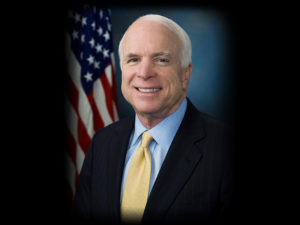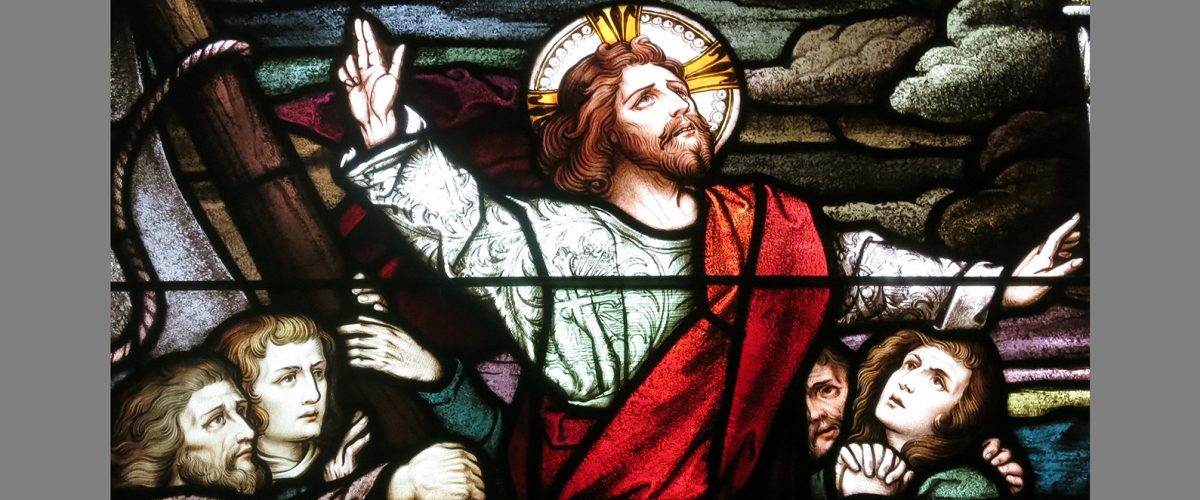“Kind of disturbing” is how journalist Katie Couric described an Axios piece about how Donald Trump built an insurmountable lead in Monday’s Iowa caucus by catering to evangelical MAGA pastors.
“They say obviously they embrace Trump because of the Supreme Court justices who helped overturn Roe v Wade,” she explained on Tik-Tok. “But then they say MAGA pastors who in speeches and podcasts cast Democrats as demonic, promote Christian nationalism, and tout Trump as chosen by God to save Christianity.”
 At this, Couric stared awkwardly at her copy of the article while the words “lol WHAT” with a spiral eyes emoji flashed across the screen.
At this, Couric stared awkwardly at her copy of the article while the words “lol WHAT” with a spiral eyes emoji flashed across the screen.
She continued, “One pastor, who’s a 27-year-old Iowan says, ‘You cannot be Christian and vote for a Democrat.”
Then taking off her glasses, she looked into the camera and asked, “What the heck? What do you think of this? Tell me. I don’t know. It feels pretty apocalyptic to me.”
Matthew Taylor, author of The Violent Take It By Force and who has done extensive research on how the New Apostolic Reformation fueled the January 6 insurrection attempt, told Axios, “It’s a tectonic shift in power. … You have all these pastors who would have been laughed out of the room 20 years ago.” But today, Taylor says these same pastors are “driving the dynamics.”
We were terrified
It’s true that evangelical MAGA pastors are more in the limelight today, especially thanks to social media. Of course, many mainstream media personalities would have laughed at what these pastors claimed 20 to 30 years ago. But those of us who sat under their teaching weren’t laughing them out of the room. Instead, we were terrified.
My high school independent Baptist pastors and school teachers told me in the 1990s that Bill Clinton and the Democrats were planning to hand the United States over to the United Nations and usher in a one-world government with stockpiles of guillotines all around the world to decapitate evangelicals.
If we masturbated that week, we risked finding out that we were never truly saved and would miss the rapture. So then for the next seven years, we would experience earthquakes, world wars, famines and even the bites of human-sized locust creatures, assuming we escaped the Democrats’ guillotines prior to experiencing eternal conscious torment.
When the rapture didn’t happen at Y2K, some of us began to settle down. But then the attacks of 9/11 happened, and the apocalyptic-sounding calls for war heated up.

George W. Bush visits East Literature Magnet School, where he participates in a the Pledge Across America Event with school children. (Photo by Brooks Kraft/CORBIS/Corbis via Getty Images)
You can’t get fooled again
“There’s an old saying in Tennessee — I know it’s in Texas, probably in Tennessee — that says, ‘Fool me once, shame on … shame on you. Fool me — you can’t get fooled again.’” These were the jumbled words of former President George W. Bush at the East Literature Magnet School in Nashville, Tenn., in September 2002 that were mercilessly mocked on late night television and cable news everywhere.
Many of us who were fooled by the apocalyptic language of our evangelical pastors in the 1990s went on to deconstruct the theology that fueled our fear. But as it turned out, there were many others who doubled down.
In Jesus and John Wayne, Kristin Du Mez wrote that in 2000, “Bush had campaigned on a message of ‘compassionate conservatism.’ The terror attacks, however, would transform him into a crusader.”
Then in an interview for the Postcards from Babylon documentary, Du Mez explained how white evangelicals followed Bush’s crusade. “We saw white evangelicals as real outliers when it came to enthusiastic support for the war, enthusiastic support for pre-emptive war,” she recalled. “White evangelicals, more than any other demographic, were more likely to condone the use of torture.”
“The question we need to face is whether we’re going to continue getting fooled by it, or if we’ll learn to recognize how it manifests itself.”
Du Mez added that this “militant masculinity” vision of Christianity used ideas, culture wars and the military “because we needed to protect God’s nation and God’s truth.”
Many resources are being published today that expose how Christian nationalist apocalypticism has spread throughout American politics. Couric is correct in calling it “disturbing.” But it should come as no surprise. The question we need to face is whether we’re going to continue getting fooled by it, or if we’ll learn to recognize how it manifests itself.
Compassionate violence in the service of political and religious ideology
For Bush, the highest good was an ideology of freedom. He said it was “especially important in a time of war that our children understand the context of why we fight.”
“You see, ours is a history of freedom,” he explained. “One of the most precious ideas we have is freedom for everybody. We love our freedoms. We love the idea of being a free society. And throughout our history, people have fought for freedom.”
In order to promote fighting in overseas wars for his ideology, Bush appealed to compassion.
“Our history shows that we’re not a nation which conquers; we’re a nation which liberates.”
“All our history says we believe in liberty and justice for all, that when we see oppression, we cry; that when we found out that young girls in Afghanistan could not go to school because they were in the clutches of one of the most barbaric regimes in the history of mankind, we acted not only to uphold doctrine and to fight the war against terror, we acted to liberate people. Our history shows that we’re not a nation which conquers; we’re a nation which liberates.”
Of course, the oppression faced in countries ruled by Islamic ideology is real and harms women and girls especially. We should be moved with compassion for them.
But while tapping into our compassion for young Afghani girls and our rightful anger toward those who oppress them, Bush transitioned into a dichotomy that categorized those who disagree with conservative religious American definitions of freedom as haters.
“There are people in the world that hate the fact that we love freedom,” he pronounced. “People cannot stand the fact that your great nation not only allows but encourages people to worship an almighty God in any way they want to.”
To Bush, the freedom we were fighting for was the freedom to worship a God who is primarily identified through unrivaled might. In other words, our compassion was Bush’s hook to support violence that would serve a white evangelical-controlled glory hierarchy.
Cruel violence in the service of retribution

Sen. John McCain
Because compassion serves the ideological hierarchy of Christian supremacy, it will eventually bend its knee in submission to retributive justice.
Du Mez explains that when Sen. John McCain ran against Bush in the 2000 primaries, McCain “denounced those who practiced ‘the politics of division and slander’ in the name of religion, party or nation, and he urged voters to resist ‘agents of intolerance,’ by which he meant men like Pat Robertson and Jerry Falwell.”
Then she points out, “The next day McCain lost the Virginia primary, and nine days later he withdrew his candidacy.”
During the 2008 presidential election, McCain initially trailed Mike Huckabee among white evangelical Protestants. But according to Pew Research, despite receiving strong criticism from white evangelical leaders, McCain built a broader coalition of support from independent and moderate Republicans that may have led the Religious Right to conclude he would have the best chance of defeating the Democratic nominee.
Similarly, Pew Research noted that white evangelical support for Mitt Romney in 2012 was similar to their support of McCain in 2008, while ultimately coming around as a vote against Obama.
“White evangelical ideology forced compassion into submission and embraced Trump’s cruel violence of retribution.”
After two losses, and everything that happened during the Obama administration, white evangelical ideology forced compassion into submission and embraced Trump’s cruel violence of retribution.
As Du Mez pointed out: “Generations of evangelicals learned to be afraid of communists, feminists, liberals, secular humanists, ‘the homosexuals,’ the United Nations, the government, Muslims and immigrants — and they were primed to respond to those fears by looking to a strong man to rescue them from danger, a man who embodied a God-given, testosterone-driven masculinity.”
To prove her point, she quoted Robert Jeffress admitting, “I want the meanest, toughest, son-of-a-you-know-what I can find in that role, and I think that’s where many evangelicals are.”
God arrayed as a soldier against you
There are a number of theological systems promoting this disturbing apocalyptic Christian nationalism today. Independent charismatics of the New Apostolic Reformation wield the power of apostles and prophets to wage spiritual warfare over the Democrats. Christian Zionists focus attention on Israel’s salvation in order to bend the will of American voters to the GOP. Worship leaders utilize sonic warfare in courting political power and blending apocalyptic retribution with the glory hierarchies of worship.
But then there is the resurgence of the New Calvinists, who pretend not to be partisan, but who shape a passion for a particular view of God and justice that is most clearly reflected in the politics of Trump.

Paul Washer
Paul Washer declares: “God saved you from God. It was God who was arrayed in the armor and weaponry of a soldier coming after you. In his holiness and his justice God coming after you to do vengeance against you to cause you to pay for all that you have done against him.”
By feeling this way about their past selves, white evangelicals are shaped to feel this way against their non-evangelical neighbors. Washer explains, “You are so desperately wicked and vile and grotesque before not only a holy God, but the holy inhabitants of heaven, that the last thing you will hear when you take your first step into hell is all of creation standing to its feet and applauding God because he has rid the earth of you.”
In other words, God is a strong man, a soldier who pursues justice by vengeance against the enemy. And evangelicals will celebrate with violent delights when these enemies are gotten rid of.
What politician is more clearly promoting violent vengeance against conservative evangelicals’ enemies than Trump?
Liberating love in the becoming of wholeness
In sharp contrast to the violent vengeance of white evangelical theology and politics is the restorative justice promoted by theologians such as Martin Luther King Jr. King preached: “We are caught in an inescapable network of mutuality, tied in a single garment of destiny. Whatever affects one directly, affects all indirectly.”
King’s spiritual adviser, Howard Thurman, said in The Inward Journey, “Thou art made for wholeness, body, mind, spirit: one creative synthesis, moving in perfect harmony within, without, with fellow man and nature all around to make heaven where hell is found.”
In this vision, there is no hierarchy. There is mutual belonging, universal interdependency, and a harmony of wholeness that includes all creation.
Dealing with the threats to peace
In his 2002 speech to the East Literature Magnet School, Bush said, “Part of the American history teaches us that we must lead toward a more peaceful world. Part of the history of the world shows that as threats develop, we must deal with them before they become too acute, unmanageable.”
No matter our political differences, I think we would agree we all want a more peaceful world and we need to deal with the threats to that peace before they become unimaginable.
But what kind of peace? And what threatens that peace?
If, as men like John MacArthur argue, peace comes through hierarchies of authority and submission, then compassion is paired with the threat of violence toward those who do not bend the knee to white evangelical ideologies of hierarchy. In this world, what threatens hierarchical peace is a lack of submission to male power. When the injustice of insubordination occurs, the result will be the death of compassion in exchange for the cruel violence of retribution. The men in charge over us will mirror the god who is arrayed as a violent soldier.
If, however, peace is a wholeness of body, mind and spirit with all creation moving toward perfect harmony, then what threatens the peace of mutuality is when some of us posture ourselves over others in hierarchies while threatening violence against those who do not submit.
The question we face in 2024 is whether we will continue to be fooled by sacralized hierarchies that promote an apocalypse of creation in exile or whether we will be transformed by the creative synthesis of body, mind and spirit that promotes an apocalypse of creation in union.

Rick Pidcock
Rick Pidcock is a 2004 graduate of Bob Jones University, with a Bachelor of Arts degree in Bible. He’s a freelance writer based in South Carolina and a former Clemons Fellow with BNG. He completed a Master of Arts degree in worship from Northern Seminary. He is a stay-at-home father of five children and produces music under the artist name Provoke Wonder. Follow his blog at www.rickpidcock.com.


